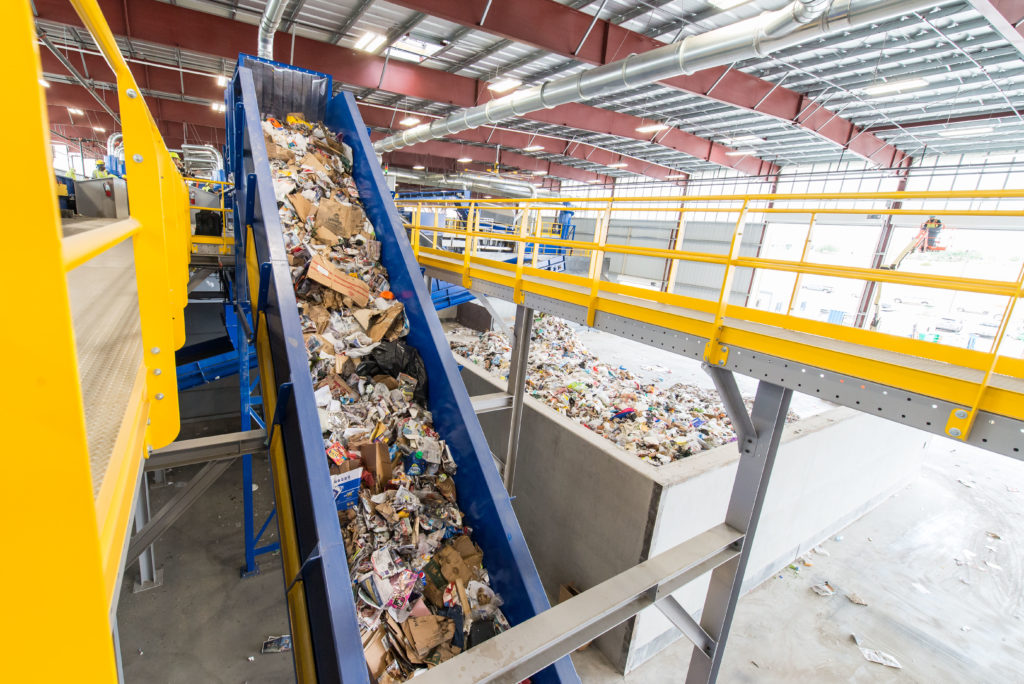
The Middle Point Landfill in Murfreesboro is the dumping ground for about a third of Tennessee counties, and officials claim it is running out of space fast.
Some towns are looking for other options.
Last month, the city of Murfreesboro entered into a contract with WastAway, a company that says it diverts waste from landfills and turns it into energy. The city council recently approved a design contract for a new biogas property as part of the project.
Basically, the idea from WastAway is to take all of the city’s trash, separate out valuables like metal and some plastics, and then incinerate it.
The company will turn most of the waste into a coal alternative, sometimes called “bio-coal,” that can be burned at coal plants for energy or cement factories to eventually produce concrete or asphalt. The company also says it can be a “wood replacement.”
Now, with the latest contract, a portion of the waste will be turned into “biogas.”
 Courtesy World Resources Institute
Courtesy World Resources Institute In 2020, the World Resources Institute estimated that there were 67 facilities that produced “renewable natural gas” from landfills.
This type of gas, sometimes called “renewable natural gas,” has the potential to have less climate pollution than fossil natural gas, but it has some of the same issues. Biogas is transported in pipelines, and leaks along the supply chain can negate potential climate impacts. These types of projects can also lock in infrastructure that enables the continued burning of fossil fuels, according to the World Resources Institute.
“We really need to have a lot more information about the process and about how they’re dealing with that before we can make any kinds of judgments on in terms of its sustainability,” said Dan Firth, a solid waste expert for the Sierra Club’s Tennessee chapter.
Landfills are the third-highest source of all human-caused methane emissions in the U.S. each year, accounting for about 15% of these emissions in 2020, according to the Environmental Protection Agency.
Landfill diversion is usually a good idea. But WastAway, which has sold the project to Murfreesboro on the basis of sustainability and diverting 90% of waste from landfills, needs to provide more transparency with this proposal, which will essentially be a pilot project for the company, Firth said.
The other concern is that this waste stream will contain inorganic materials, including some plastics.
No plan to expand the landfill
The plan will require both facilities for anaerobic digestion, the act of breaking down organic materials without oxygen, and gas purification, the process of extracting methane so that it can be burned at natural gas plants for electricity. The city has allocated $2.5 million for design fees for the various facilities needed for WastAway’s solid waste management project, which includes a material management station with a bio-coal manufacturing section, an anaerobic biogas generator and a gas purification section.
The proposed project agreement establishes “an expectation for good faith negotiation” regarding both the construction, estimated at $67.5 million total, and the long-term operation of the project.
“Providing an alternate solution to solid waste management that is sustainable and generates a beneficial fuel such as renewable natural gas allows the city to continue to expand its solid waste services at the lowest cost for future growth,” Darren Gore, Murfreesboro’s assistant city manager, said in a statement. “I am confident that the WastAway process works.”
Republic Services, the owner of the Middle Point Landfill, wants to expand the pit by about 100 acres. The city of Murfreesboro has rejected this plan and filed a federal lawsuit against the landfill owners in August.
The Middle Point Landfill could close in as little as three years without expansion, officials have said.
WastAway could not be reached for comment.

